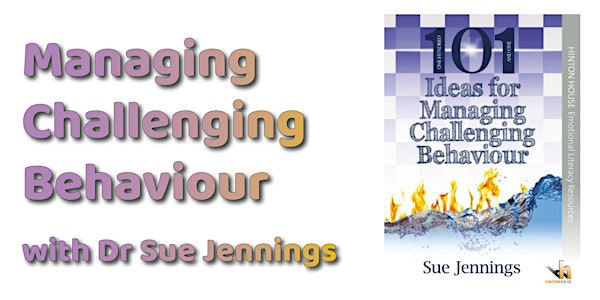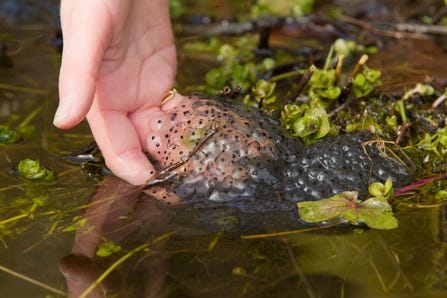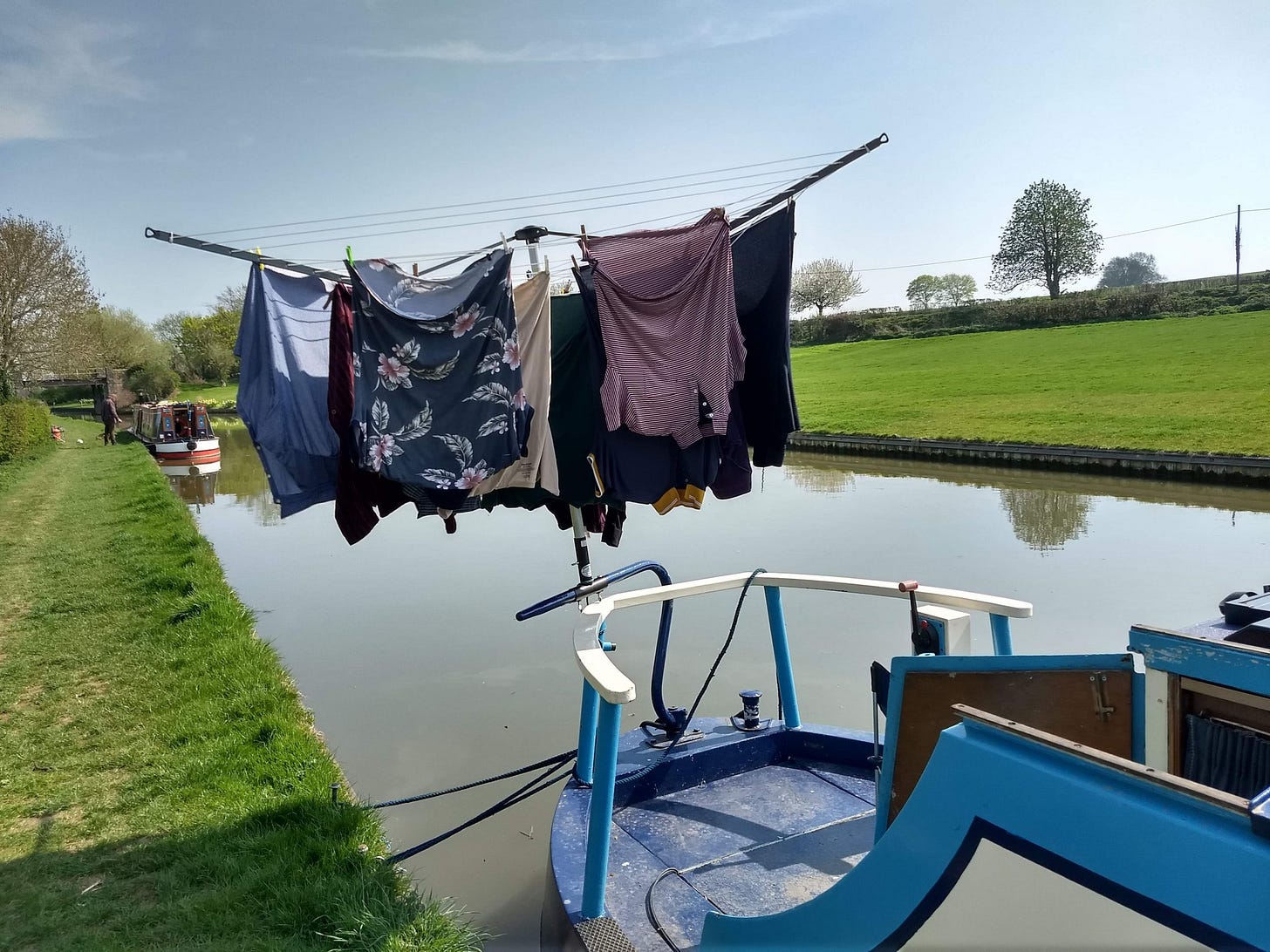Dear All,
Just into the holiday month of August and we’ve finally had a glimpse of summer! It seemed there was to be no chance to build up strengths again and enjoy some warmth, but a continuation of grey days, drizzle and occasional holes in the cloud! How welcome the sun and warmth has been! Who else remembers when they were younger, the happy days spent outside, playing in dens, newly built and eating huge ripe blackberries away from polluting roads, and getting told off for dribbly chins and sticky hands?
You must think I am getting nostalgic for a golden past and a bountiful landscape. But there were shadows, constant shadows. The constant fear of getting things wrong, trying so hard to be a people pleaser, which was my main coping mechanism. Several hours of ballet practice every day, usually starting before six in the morning. The fear of travelling on the school bus because of the constant bullying, which was only transferred to the school where I was the butt of persecution by the games staff, and some fellow pupils because I was ‘different’. It was a constant strain to attend school when my parents constantly criticised it! Everything was wrong: homework, uniform, sports, after school activities, curriculum. The team spirit described by the head teacher was dismissed as herd instinct by my father!
It was very difficult to have parents who assumed that one would sail through things, and automatically achieve success in exams and tests; if one admitted to struggling there was disbelief, and an assumption one was creating the difficulties. And the biggest challenge was the parental response to bullying and ridicule, which was ‘No Notice’. One must not react or even notice that someone was belittling, ridiculing, mocking, or pinching or flicking! No Notice.
But let’s be positive! I have learned to play without fear; I have even been made a Professor of Play! With excellent therapy and an insightful therapist, it’s amazing what can be achieved.
And therapists don’t say ‘No Notice’.
With Love,
Dr Sue
Courses
This summer’s book tie-in webinars have been going down well. We have one left this coming Saturday 9 August at 0900-1030: Managing Challenging Behaviour. Only £35 which includes a copy of my book (RRP £35.99 on its own!). Book your place here.
Next week I am running two webinars: Children and Young People who Self Harm: working with Creativity and Play on Wednesday 14 August at 1200-1330, or Saturday 17 August 0900-1030. Tickets are only £25. Book here.

NDP and Forms of Play
We have discussed the basics of NDP in previous Newsletters, namely: Water Play, Rhythmic Play, Messy Play and Dramatic Play. Although water play probably starts it all off, these contrasting play-forms start and interact with each other, rather than following a developmental pathway.
“Rhythmic play usually gives safety and security, and messy play is the adventure for the curious!” (Jennings 2024)
There in the background is the steady heartbeat, slowing down at night, speeding up again. Alerting us to danger when it beats really fast, calming us down when it slows to gentle rhythm, influenced by our breathing. One reason that bubble blowing can be helpful during any fear episodes, is that you need a deep, slow breath to make the bubbles happen.
Rhythmic Play: so we are calm with our heartbeats, and we are rocked in arms or cradles: I wonder why cradles and rocking chairs became things of the past – any thoughts?
I was going to talk about dramatic play today, but I became diverted by some recent correspondence about sensory play, and in particular, yes, you’ve guessed it, messy play! People seem to equate messy play with being out of control, or not becoming toilet trained, or not learning to eat ‘nicely’, or fighting other children with messy substances, and generally causing chaos in the home or school!
When children play in a paddling pool and are splashing and having fun; that is messy play. At the same time they are learning which arm and hand gestures make the biggest splash, that non-stop splashing will eventually lower the water level, and adding earth will make the water muddy! The same process happens with finger paints, shaving foam, clay, flour and water and many more substances, through the mess there is a finding out process, there are results. Therefore messy play is crucial for encouraging curiosity, for finding out ‘What happens if…’. In recent years, play slime has gained in popularity. Who remembers the feel of green algae, or frog spawn? As well as the many forms of water play, messy play that occurs in the natural world.
You can by play slime ready-made, or all the ingredients in a kit, or you can make your own. The following is a basic recipe:
Basic Slime Recipe
Ingredients:
* Half a cup of white glue
* Half cup water
* ¼ - ½ teaspoon of Baking Soda
* Drops of food colouring
* 1-2 tablespoons saline solution
Method:
* blend glue and baking soda,
* add colouring
* add saline solution to desired texture – dry or wet
* keep kneading it until stretchy
A strong reason to make your own slime is that children can be involved in the process, rather than having a ready-made product. Also you can carefully monitor that there are no toxic ingredients. There will be more on slime next time, including monsters!
Plenty to think about!
With love,
Dr Sue
Bits and Pieces:
Remember NDP and Autism: 29 July - 10 August, Kelly Hunter has organised a special conference on Shakespeare and Autism, which features performances, workshops and forums; more information on the Flute Theatre website.
Studying NDP: remember there are several ways to gain a Diploma in NDP. You can spread the training over several months by studying at the weekends on our Live Taught Course OR you can apply for the ‘Self-Guided’ Course, and study all of it in your own time and at your own pace…
…OR you can come to Naxos in early October, and spend a week on this idyllic island, playing on the beach and in the shallows. Find out more HERE.
Watch this space! We shall shortly be announcing the ‘NDP Student of the Year’, which is awarded to someone who has consistently shown a high standard in their assessments, course work and workshops.
Just a little nudge – please consider becoming a paid subscriber – not only does it help me as a writer – you also gain more, with additional article, stories and techniques, free webinars and 10% discount on any UK training. As a paid subscriber you are supporting new things that I am creating and are closely involved in the process. Just £65 per year or monthly instalments. Thanks and a hug.
And finally, our bed-time story. This time it is the next section from our story about life at a rural school after WW2.
Miss Penny-Weather’s Country School
The Story of Jimmy Swift, the Boy from Somerset:
Miss Penny-Weather’s Country School story is based on events that the author experienced or that she heard about as a child in post-war Britain. It creates the atmosphere of the rural school and is a useful addition to lessons about social history. It will be published as a book later this year.
Episode 5
Jimmy awoke early the next morning, his Dad was already moving around on deck, getting ready to start their journey down the canal. He dressed and washed his face in the cold water by the sink, and went to join his Dad on deck. But he seemed much less tense, and smiled as Jimmy arrived next to him, and put a hand on his shoulder, briefly. Jimmy wondered whether his Mum had said anything or was it just that his Dad had had a good night’s sleep? He didn’t say a word but got on with one of his jobs, which was taking a small brush and brushing out any dust or soil or leaves from the corners of the deck, and round the sacks and boxes, in fact anywhere where the big deck brush could not reach. His Dad had already done the big sweeping with a broad deck-brush and would then mop it damp, not wet, to settle any dust, before they set off.
There was no sitting down to breakfast on the mornings they had to deliver cargo; as soon as Jimmy heard his Mum clattering round the galley, where they had a very small kitchen, he would go down to fetch breakfast for his Dad and himself. Mum made huge sandwiches from thick bread and then an egg and a rasher of bacon: one for Jimmy and two for Dad! On Sundays they had sausages as a treat. He finished the brushing and then went down to the galley. His Mum gave him a hug and then put her finger on her lips, as if to say, ‘Not another word’. Jimmy nodded and went back to the deck with the bursting sandwiches, at least they did not go hungry!
Jimmy took the tiller for a while, while Dad mopped the deck; that was the last cleaning job which started every morning. On Saturdays they also cleaned all the brass fittings and washed the windows inside and out, as well as re-filling the water tank and getting rid of waste and toilet water. Mum took charge of all the washing: clothes and bed-clothes, she had to wash everything by hand. When it was a fine day, she would put a washing line on the deck and the clothes would soon be dry. When it was wet, she would do a little bit of washing at a time and hang it near the log fire - but it would steam up the cabin windows and add to the damp feeling. She would say to the children ‘Keep your clothes clean, it’s not washing weather!’ And they would both be extra careful when, playing and eating, not to make a mess.
On deck, Jimmy and Dad were getting g ready to go through the first lock; Dad would do the careful steering, and Jimmy would use the special pole, to gently push the barge from getting grazed on the walls of the lock, which were very narrow. He had been doing this for years now, and his arms had grown very strong; it was very rare that the boat touched the walls, and that was usually when there was a surge in the water. That could be caused when. there were several barges waiting to go through the lock, and there was more movement in the water.
Suddenly Dad said, ‘About that berry thing you were saying yesterday. Your Mum and I had a talk about it last night, and it seems I misunderstood – I thought you were picking berries because we were poor and needed some extra money, and that got me cross, ‘cos we do OK!’ Jimmy silently shook his head as he knew his Dad was going to say more. He went on, ‘But your Mum explained that you were doing it to get some extra pocket-money for yourself. That’s fine lad, so say no more about it.’ Dad was a man of few words and Jimmy knew that was the end of the subject, but he said, ’Thanks Dad, I shall join the other children on Thursday.’
Jimmy was delighted, he did not say anymore; he knew it was an effort for his Dad to climb down from an original statement and be persuaded to change. Already Jimmy had a plan for when he started earning some money, and he was going to learn to read. Thursday was going to be a special day!
(If you prefer to listen to these stories, they will shortly be available on YouTube ‘NDP Storytime with Sue Jennings’ and ‘Stories of Mouse and Mouse’. The ‘Moose and Mouse’ stories are written for children under the age of 6 years and address important issues in child development such as attachment, loss, playfulness, adventure, safety and fears. See our website here.)
Welcome to our Subscribers’ exclusive area with more news items, resources, stories and more. If you can’t see what’s below then please do subscribe and join us!
Keep reading with a 7-day free trial
Subscribe to Sue Jennings Presents to keep reading this post and get 7 days of free access to the full post archives.










